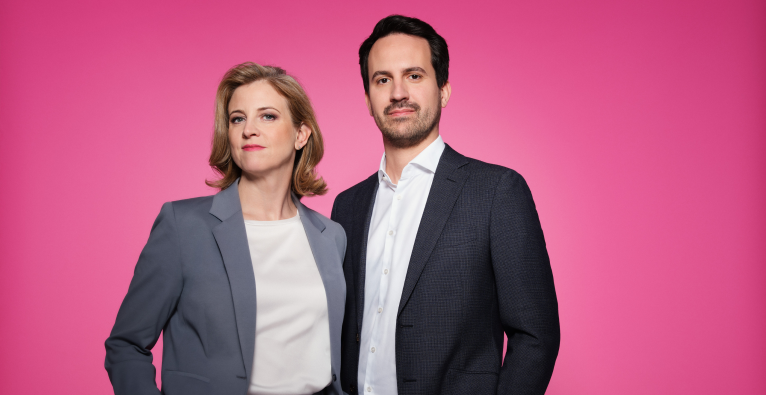✨ AI Kontextualisierung
Am 28. Mai 2019 gastiert die von der aaia initiierte Roadshow „CEE Unlimited“ in der bulgarischen Hauptstadt Sofia. Als Partner der Roadshow bietet der brutkasten hier einen Blick auf die Wirtschaft Bulgariens, sowie auf diverse Aspekte des dortigen Startup-Ökosystemens.
Entwicklung der bulgarischen Wirtschaft
Die bulgarische Wirtschaft wuchs im vergangenen Jahr laut Angaben der Außenwirtschaft Austria um 3,3 Prozent. Die in der EU-Förderperiode 2014-2020 vorgesehenen Projekte (Autobahn- und U-Bahnbau) liefen 2018 an und belebten die Inlandsnachfrage. Die Inflation lag 2018 bei 2,7 Prozent.

Im Jahr 2018 war die bulgarische Handelsbilanz stärker defizitär (-2,2 Mrd. Euro), das Exportwachstum verlangsamte sich auf 3,2 Prozent, die Importe stiegen aufgrund einer höheren Inlandsnachfrage um 6,3 Prozent. Die Exporte in die EU wuchsen um sieben Prozent. Tourismus, Transport, IT und die Outsourcing-Branche schlossen in der Bilanz überdurchschnittlich ab.
Im Jahr 2017 kamen laut dem Länderprofil der Außenwirtschaft Austria (kostenloser Download unter diesem Link) auf 100 Einwohner 63,4 Internetnutzer.

Außenhandel mit Österreich
Das österreichische Defizit in der Leistungsbilanz mit Bulgarien betrug 2018 123,7 Millionen Euro. Die Nachfrage nach bulgarischen Dienstleistungen steigt laut Außenwirtschaft Austria weiter, vor allem beim Outsourcing von Teilen der Produktion nach Bulgarien, Speditionsleistungen, sowie Dienstleistungen von bulgarischen Tochterfirmen für ihre österreichischen Mutterfirmen (Personalverrechnung, technische Planungsleistungen, Programmierarbeiten).

Chancen für österreichische Unternehmen werden unter anderem in den Bereichen Bergbau / Metallverarbeitung, Automotive, Verkehrsinfrastruktur/Tiefbau und Nahrungsmittel/Softdrinks gesehen.
IT-Fachkräfte in Bulgarien
Die Arbeitslosenrate ist laut Außenwirtschaft Austria mit fünf Prozent auf ihrem Tiefststand seit Überwindung der Krise, die 2008/2009 begann. Ein schwaches Wirtschaftswachstum in der Industrie (plus 0,8 Prozent) ist laut Außenwirtschaft Austria vor allem auf einen Mangel an Arbeitskräften zurückzuführen. Das trifft auch auf die IT-Branche zu: Hier fehlen dem AußenwirtschaftsCenter zufolge 40.000 Programmierer.
+++Hotspot-Analyse: Rumänien als Markt für Startups und Investoren+++
Laut einem Report von infoshare.pl in Kooperation mit Stack Overflow aus dem Jahr 2017 gab es damals 51.024 Entwickler in Bulgarien, der Großteil davon (35.942) lebte in der bulgarischen Hauptstadt Sofia, gefolgt von Städten Plovdiv, Varna und Burgas. Dem Report zufolge sind Kenntnisse in PHP unter bulgarischen Programmierern besonders ausgeprägt (23 Prozent), am wenigsten stark verbreitet sind die Kenntnisse in Python (sechs Prozent).
Interessant ist Bulgarien aber besonders wegen der vergleichsweise geringen Kosten für IT-Fachkräfte: Laut PayScale.com liegt das durchschnittliche Jahresgehalt eines Developers in Bulgarien bei 30.702 bulgarischen Lew (15.698 Euro). In einem Beitrag des Standard aus dem Jahr 2017 heißt es wiederum, dass das durchschnittliche Gehalt eines Software-Ingenieurs in Bulgarien bei 3500 Lew (1800 Euro) monatlich liegt. Ein anderer, aktueller Artikel führt wiederum eine Besonderheit des bulgarischen Tech-Ökosystems an: Der vergleichsweise sehr hohe Frauenanteil.
Startups in Sofia
Crunchbase listet in Sofia 145 Organisationen und 276 Gründer. Erwähnenswert ist weiters, dass eu-startups.com in seiner Liste der „10 startups to look out for in the Balkans in 2019 and beyond“ zwei Startups aus Bulgarien aufgenommen hat: Das 2015 gegründete FindMeCure und das Agrobiotech-Startup Nasekomo.
Laut dem CEE Fintech Atlas 2019 der Raiffeisen Bank International ist Bulgarien außerdem „eine der am schnellsten wachsenden Fintech-Destinationen“ in der CEE-Region. Besonders das schnelle Breitband-Internet ist laut RBI ein Treiber dieser Entwicklung. Als größte Fintech-Company gilt laut dem RBI-Report Cash Credit, welches den „unbanked“ einen Zugang zu Finanzdienstleistungen bietet und laut RBI auf Funding in Höhe von 18,9 Millionen Euro kommt.
Investoren in Bulgarien
Die beiden prominentesten seed-stage VCs in Bulgarien sind laut dem RBI-Report ELEVEN und LaunchHub – beide VC-Fonds spielen eine Rolle bei der Finanzierung von Startups und innovativen KMU und sind dem Report zufolge in Bulgarien sehr aktiv.
Laut Statistiken der europäischen Business Angel Vereinigung EBAN gibt es in Bulgarien 105 Business Angels, die im Jahr 2017 insgesamt sieben Millionen Euro investiert haben – 40 Prozent mehr als im Vorjahr.
+++Mehr zur aaia-Roadshow CEE Unlimited+++
Laut dem Bericht „Seed the Future“ von Stripe und Techstars fanden 0,01 Prozent der europäischen Early Stage Venture-Investments in Bulgarien statt. Das Land belegt somit den letzten Platz des Rankings – was im Umkehrschluss heißt: Es gibt noch viel Potenzial für Wachstum.








